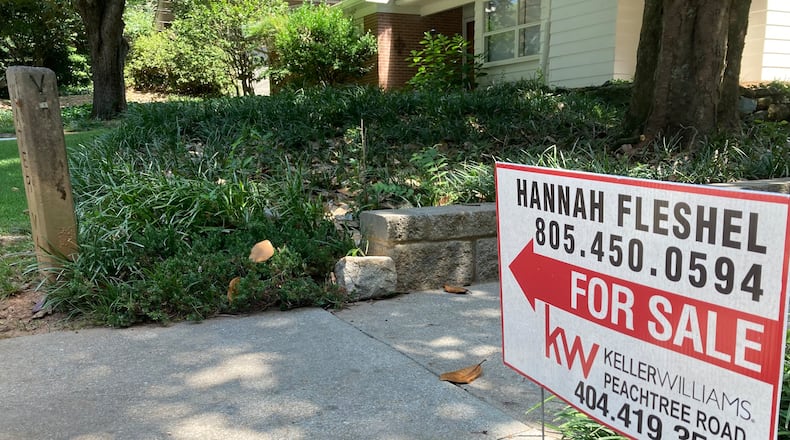Georgia’s real estate market is getting high marks in the most undesirable categories. It’s ranked as the 13th worst state to buy a starter home, according to Construction Coverage. In addition to this affordability crisis, the state is also a hotbed for real estate fraud. According to a study from law firm Anidjar & Levine, potential homebuyers lost more than $4 million to real estate fraud in 2023, the 10th highest total nationwide.
A report by Forbes Advisor found 437 fraud reports for every 100,000 residents in Georgia during the first quarter of 2023. The FBI’s internet Crime Complaint Center received a record-high 880,418 complaints, with reported losses surpassing $12.5 billion nationwide. This marks an alarming 10% increase in complaints and a 22% surge in losses compared with 2022.
Credit: Handout
Credit: Handout
We all know that giving away passwords and access to our devices are scams waiting to happen, but that is no longer how people are losing money to fraudsters. With technological advancements, scammers are using increasingly sophisticated means to extract funds from unsuspecting victims using tactics such as social engineering. Social engineering is the act of manipulating people to enable crime.
For example, you could receive an email in which someone is posing as your mortgage lender and providing you with information supposedly only your lender would have. The email address might vary so slightly that you wouldn’t notice the difference and deem it as credible. Such scams indiscriminately target people of all educational backgrounds and ages, leaving the most vulnerable populations at risk.
Low housing inventory creates additional pressure on buyers, sellers and their agents for fast turnarounds, creating ideal conditions for socially engineered scams to succeed. Consumers are targets throughout the entire process, even during the moving process after the home sale is finalized. With only 15.5% of homes for sale being affordable for the average household, affordable housing is cemented as a top voter issue, especially among younger voters. It is imperative that policymakers of both present and future administrations place greater scrutiny on housing affordability and how real estate fraud is an exacerbating factor.
In today’s digital world, new methods of fraud are evolving on a daily basis. For example, when scammers hacked into the city of Atlanta’s employees’ email accounts, they were able to steal almost $800,000 through fake invoices. The victims were manipulated to believe the correspondence came from a trusted source: the city of Atlanta.
In another case, a man wanted in Gwinnett County was recently arrested for stealing $200,000 from two sets of victims in a real estate scam. The scammer posed as a representative of a law firm to gain their trust, a commonly used method to commit wire fraud. These crimes are taking place every day in Georgia.
Though we hear about scams every day, real estate fraud is not talked about enough considering the exceptionally high dollar amount involved and likelihood of victims losing their life savings. To this point, the real estate sector accounted for $446 million in losses reported to the FBI last year. Moreover, real estate fraud happens more frequently than you’d think with 1 in 20 consumers having the potential to become a fraud victim during a home purchase transaction.
In many wire fraud cases, banking institutions are continuing to argue that they aren’t liable for reimbursing customers because of an exemption in the law. In response, policymakers in Washington, D.C., are urging banks to put consumer protections in place.
Though bank protections can curb fraudulent activity, they are not a silver bullet. It’s important to be proactive and vigilant to avoid being scammed in the first place. Similar to disputing false credit card charges, once the money has been transferred, it could take months or years to retrieve the money and, in cases of real estate transactions, an individual’s life savings. This challenges the integrity of the housing market and only further exacerbates the affordability crisis.
It’s therefore important to exercise heightened vigilance around wire transfers, but scrutinizing the institutions involved in extremely large purchases like real estate is a must. Having an open line of communication with your real estate agent can significantly mitigate the possibility of scams considering the critical role they play in the home buying process. In the case of real estate, 71% of consumers believe it’s the real estate agent’s responsibility to educate buyers and sellers.
Though some policymakers urging banks to take accountability is a positive development, this is not the only solution and cannot be the only action.
Consumers must adopt a lifestyle that prioritizes greater vigilance and Realtors, and lenders must work together to educate consumers. A framework to curb the billions being lost each year will require a societal push to step up and take steps to prevent fraud.
Tom Cronkright is the co-founder and executive chairman of CertifID, a technology platform designed to safeguard electronic payments from fraud. He co-founded the company in response to a wire fraud he experienced and the rising instances of real estate wire fraud. He also is chief executive officer of Sun Title, a Michigan-based title agency.
About the Author
Keep Reading
The Latest
Featured




